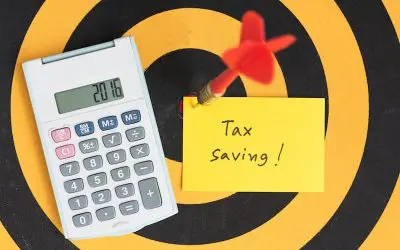When investing, there is a large range of markets and investments to choose from. In this article, we’ll outline the differences—both advantages and disadvantages—between investing in two seemingly opposite types of investment: real estate and forex.
Real Estate
While there are many ways of investing in real estate, the general idea is to purchase a property by paying the down payment and finding a lender to leverage the remaining amount. After that, you can keep it to sell, fix and flip, or establish it as a rental property to create a more long-term investment.
What are the advantages?
In terms of profit, there are lots of ways to generate profit from a property. You can buy a property at a lower price and then sell it once the market has gone up. Or you can turn it into a rental property with a monthly influx of rent. If successful, this could pay the taxes, mortgage payments, and related maintenance expenses, as well as give a good rate of return and go towards building long-term equity.
Buying property is expensive, so many investors lack the capital to buy property upfront. In this case, you can utilize leverage to get your foot in the door on investing in a property. Using various lenders such as banks, credit unions, or a private lender, an investor may be allowed to put down as little as a 10% or 20% down payment, which allows you to have more cash flow as you put the work into your property to pay back the loan and make a profit.
Additionally, a tangible investment like real estate may be a bonus for some investors. This is especially true if you want something to be able to pass down to your posterity, or if you like the idea of buying into a community that you care about.
What are the disadvantages?
On the flip side, real estate includes significant expenses: the cost of purchase, lenders’ fees, insurance, legal fees, and maintenance. It’s also subject to the ups and downs of the market, though with real estate outperforming the stock market by 2:1 since 2000, it has a pretty solid track record.
Another concern is that real estate can be time consuming as you take on rehab, tenant placement, maintenance, and more. At High Return Real Estate, we have systemized and simplified those processes to provide you with turnkey real estate investment opportunities. With these systems in place, real estate investments can be free of many of the headaches you’ll face if you go it alone so consider all of your options.
Forex
On the opposite end of the investing spectrum is the foreign exchange, or forex market. Forex is a decentralized global market aimed at trading national currencies. It is the most liquid market in the world and is one of the most accessible, with participants ranging from amateur traders to major financial institutions and corporations.
Instead of purchasing a property for profit, a participant in forex will speculate on the fluctuating values of different currencies in an attempt to make a profit based on trading the two units. Forex can feel disconnected as opposed to buying a piece of tangible property because there is no tangible commodity being purchased. Instead, profit is made via the fluctuation between currencies.
What are the advantages?
While there are ways to invest in real estate to achieve more liquidity than simply purchasing real estate, the flexibility of trading on the forex market is indisputable. Forex is one of the most liquid markets in the world and runs 24/7, allowing you to turn your investment to cash whenever you like.
In terms of profit, trading with forex stems from a series of small investments. With an effective trader, and over dozens of swaps, a good trader will see more success than not.
Most forex traders take advantage of leverage. For instance, if you leverage a 50 to 1 ratio then it means that an investor with a $1000 investment can work with $50,000 on the market. This is advantageous in how much it increases the potential for profit during the trade, but also increases the potential for bigger losses.
What are the disadvantages?
To begin with, there are some expenses to forex. Usually, an investor will find a trading platform that purchases currency pairs at a particular price. This is often set up by the trading group and generally includes a premium. This helps the trading group make some profit. Granted, since trading on the forex market is such a straightforward transaction, this beginning premium is quite small, but it’s still a fee that should be accounted for.
For some investors, the nature of forex trading and its lack of tangibility that one finds with investing in real estate may be a disadvantage. Investors who want their investments to be a part of their life, family, and community may not find trading on the foreign exchange market to be as meaningful.
Investing in real estate is a popular option for diversifying your investment portfolio, and its strong performance over the past 20 years makes it a very attractive option. While it does present some disadvantages, many of those can be mitigated with careful execution.
High Return Real Estate provides a straightforward way to increase wealth with cash flow properties. Known for our strategic turnkey real estate investing, we are producing some of the best returns in real estate investing and creating highly lucrative income streams for our investors.
We also provide our investors with CashFlow+, a comprehensive investor education program so that they’re not just learning about real estate, they’re learning about the whole spectrum of smart investing. This includes executing the most effective tax planning strategies, leveraging 401Ks and other “lazy assets,” improving debt management, and making the most of investment opportunities such as forex. Contact us to learn more.



